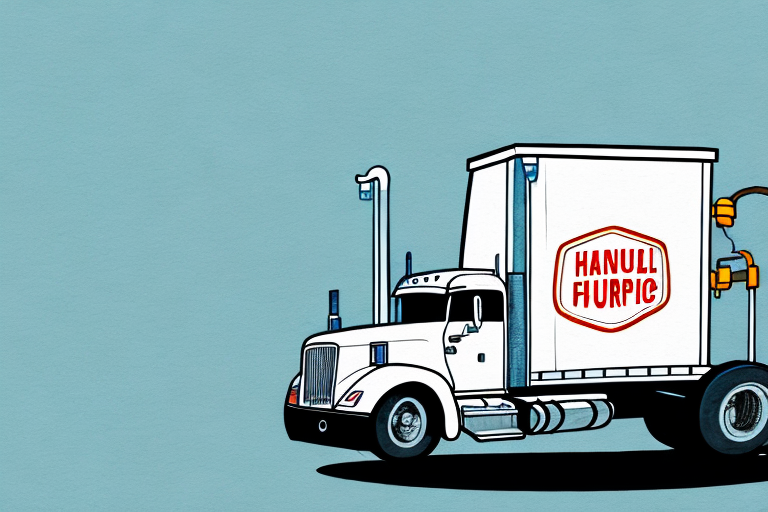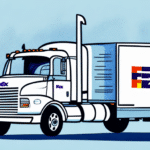Understanding the Impact of Fuel Surcharge on Supply Chain Management
Fuel surcharge is an additional charge applied to shipments to compensate carriers for the fluctuating price of fuel, primarily diesel. This practice has become commonplace in the transportation industry due to the volatile nature of fuel prices. As of 2023, fuel prices have seen significant fluctuations influenced by geopolitical events, supply chain disruptions, and shifts in energy policies. This volatility has a profound impact on the supply chain industry. In this article, we'll delve into the fundamentals of fuel surcharge, explore its significance in supply chain management, examine factors affecting fuel surcharge rates, discuss the critical role of fuel efficiency in reducing fuel surcharge costs, and outline best practices for managing fuel surcharge expenses effectively.
The Basics of Fuel Surcharge and Its Significance in Supply Chain Management
Fuel surcharge is a fee added to a shipment's transportation costs based on the current price of fuel. This fee compensates carriers for the additional costs incurred due to fluctuating fuel prices. Typically, fuel surcharge rates are adjusted weekly or monthly, depending on the carrier's chosen formula, which may consider factors such as miles per gallon, region-specific fuel prices, or other relevant metrics.
The impact of fuel surcharge on supply chain management is substantial. When fuel prices rise, fuel surcharge rates increase, leading to higher freight costs. According to the Statista 2023 report, fuel costs account for approximately 30% of total transportation expenses. This increase can cascade through the supply chain, ultimately affecting consumer prices. Therefore, understanding how fuel surcharge works and its impact on transportation costs is crucial for businesses aiming to maintain profitability and competitive pricing.
Additionally, the type of transportation used significantly influences fuel surcharge rates. For instance, air transportation typically incurs higher fuel surcharge rates compared to ground transportation due to the higher fuel consumption of aircraft. Moreover, the distance of the shipment affects the fuel surcharge rate, as longer distances require more fuel, resulting in higher fees.
Businesses must stay informed about fuel surcharge rates and their calculation methods. By comprehending the factors that influence fuel surcharge, businesses can make informed decisions about their transportation options and negotiate better rates with carriers, leading to cost savings and a more efficient supply chain.
Factors Affecting Fuel Surcharge Rates and Their Impact on Supply Chain Costs
Several factors influence fuel surcharge rates, including fuel prices, fuel efficiency, shipping distance, fuel taxes, and carrier competition.
- Fuel Prices: Fluctuations in fuel prices directly affect fuel surcharge rates. According to the U.S. Energy Information Administration, diesel prices have risen by 15% in the past year, leading to a corresponding increase in fuel surcharges.
- Fuel Efficiency: Carriers that improve their fuel efficiency can offer lower fuel surcharge rates. Investments in fuel-efficient vehicles and optimized routing can significantly reduce fuel consumption.
- Shipping Distance: Longer shipping distances require more fuel, resulting in higher surcharge rates.
- Fuel Taxes: Variations in fuel taxes across different states can impact surcharge rates for shipments crossing state lines.
- Carrier Competition: Increased competition among carriers may lead to more competitive fuel surcharge rates as carriers vie for business.
Furthermore, the type of fuel used by carriers plays a role. Carriers utilizing alternative fuels like biodiesel or natural gas may have different surcharge rates compared to those using traditional diesel fuel. Weather conditions also impact fuel surcharge rates; extreme weather events can disrupt transportation routes, causing delays and increasing fuel costs.
The Role of Fuel Efficiency in Reducing Fuel Surcharge Costs for Supply Chain Management
Fuel efficiency is pivotal in reducing fuel surcharge costs within supply chain management. Improved fuel efficiency leads to reduced fuel consumption, enabling carriers to offer lower fuel surcharge rates. Strategies to enhance fuel efficiency include:
- Route Optimization: Utilizing advanced routing software to find the most efficient paths can significantly reduce fuel usage.
- Driver Training Programs: Educating drivers on fuel-efficient driving techniques can lower fuel consumption.
- Investing in Fuel-Efficient Vehicles: Upgrading to vehicles with better fuel economy can lead to substantial savings on fuel surcharge costs.
Moreover, adopting alternative fuels can further reduce fuel surcharge costs and environmental impact. According to a EPA report, transition to alternative fuels like electric power and compressed natural gas can decrease fuel consumption by up to 20%, thereby lowering surcharge rates.
Businesses can also reduce their own fuel consumption through efficient transportation and logistics practices, better inventory management, and using fuel-efficient vehicles within their operations. These measures not only lower fuel surcharge costs but also enhance sustainability and reduce the overall carbon footprint.
Implementing Effective Strategies to Manage Fuel Surcharge Expenses in Supply Chain Operations
Managing fuel surcharge expenses effectively requires a combination of strategic practices:
- Partnering with Transparent Carriers: Work with carriers that offer clear and competitive fuel surcharge rates.
- Implementing Fuel-Efficient Practices: Optimize transportation practices to reduce fuel consumption.
- Utilizing Technology: Employ fuel management software to monitor and manage fuel costs efficiently.
- Alternative Transportation Modes: Consider using rail or intermodal transportation to lower fuel surcharge costs.
Negotiating contracts that include fuel hedging can also protect businesses from sudden spikes in fuel costs. Fuel hedging involves locking in fuel prices for a specified period, providing cost stability for businesses with high transportation volumes. By integrating these strategies, businesses can effectively manage fuel surcharge expenses and enhance their supply chain operations.
Comparing Fuel Surcharge Models: Which One is Best for Your Supply Chain Business?
Choosing the right fuel surcharge model is essential for optimizing transportation costs. Common models include:
- Percentage-Based Model: Charges a percentage of the transportation cost based on fuel price indices. This model benefits businesses with high-volume shipments.
- Flat Rate Model: Applies a fixed surcharge regardless of fuel price fluctuations. This model offers predictability and is suitable for businesses with stable fuel prices.
- Index-Based Model: Adjusts the surcharge based on real-time fuel price indices. Ideal for businesses operating in industries with highly volatile fuel prices.
The ShipScience guide provides a detailed comparison of these models, helping businesses select the one that aligns with their supply chain needs. Factors to consider include the volatility of fuel prices within the industry and the nature of the business's shipping volume. For instance, an index-based model may offer flexibility and cost savings in fluctuating markets, while a flat rate model provides budgeting ease in more stable environments.
The Impact of Fluctuating Fuel Prices on Supply Chain Management and How to Mitigate Risks
Fuel price volatility can significantly disrupt supply chain management by unpredictable changes in transportation costs. To mitigate these risks, businesses can adopt several strategies:
- Fuel-Efficient Transportation Practices: Optimize routes and invest in fuel-efficient vehicles to reduce dependency on fuel prices.
- Negotiating with Carriers: Partner with carriers that offer fair and transparent fuel surcharge rates.
- Technology Utilization: Implement fuel management systems to monitor fuel consumption and identify cost-saving opportunities.
- Fuel Hedging: Secure fuel prices through contracts to protect against price spikes.
By integrating these strategies, businesses can stabilize their transportation costs despite fuel price fluctuations, ensuring a more resilient and efficient supply chain.
Understanding the Link Between Fuel Surcharge and Carbon Footprint in Supply Chain Operations
Fuel surcharge is intrinsically linked to a shipment's carbon footprint. Increased fuel consumption results in higher carbon emissions, contributing to environmental degradation. Therefore, managing fuel surcharge effectively can also lead to a reduction in the carbon footprint of supply chain operations.
Businesses can mitigate their environmental impact by adopting fuel-efficient transportation practices and partnering with carriers committed to reducing carbon emissions. According to the IPCC 2023 report, transportation accounts for roughly 14% of global greenhouse gas emissions. Implementing strategies such as route optimization, using alternative fuels, and investing in electric vehicles can significantly lower carbon emissions and fuel surcharge costs.
The Role of Technology in Managing Fuel Surcharge Costs for Efficient Supply Chain Management
Technology plays a pivotal role in managing fuel surcharge costs and enhancing supply chain efficiency. Key technological tools include:
- Fuel Management Software: Tracks fuel consumption, identifies inefficiencies, and provides data-driven insights for cost reduction.
- Route Optimization Tools: Utilize algorithms to determine the most fuel-efficient routes, minimizing fuel usage and costs.
- Telematics Systems: Monitor vehicle performance and fuel efficiency in real-time, enabling proactive management of fuel consumption.
- Supply Chain Management Platforms: Facilitate seamless communication and coordination among shippers, carriers, and other stakeholders.
Adopting these technologies allows businesses to gain greater visibility into their transportation operations, streamline processes, and reduce fuel surcharge costs effectively.
Analyzing the Future Outlook of Fuel Surcharge and Its Influence on the Supply Chain Industry
The future of fuel surcharge in the supply chain industry is influenced by several emerging trends, including increasing environmental regulations, advancements in fuel-efficient technologies, and shifts towards alternative energy sources. As businesses and governments prioritize sustainability, the reliance on fuel surcharges may evolve to incorporate more environmentally friendly practices.
According to the International Energy Agency, the adoption of electric and hybrid vehicles is expected to grow, potentially reducing the overall dependence on traditional fuels and altering fuel surcharge models. Additionally, digital transformation in supply chain management will likely lead to more sophisticated fuel surcharge calculation methods, incorporating real-time data and predictive analytics.
To remain competitive, businesses must stay informed about these developments and adapt their strategies accordingly. Embracing technological innovations and sustainable practices will be essential in managing fuel surcharge costs and maintaining efficient supply chain operations in the evolving market landscape.
In conclusion, fuel surcharge is a complex yet critical factor in supply chain management that significantly impacts transportation costs and overall supply chain efficiency. By understanding the fundamentals of fuel surcharge, the factors influencing it, and implementing best practices for management, businesses can effectively reduce transportation costs and enhance their operational efficiency. Leveraging fuel-efficient practices and advanced technologies not only lowers fuel surcharge expenses but also contributes to sustainability and environmental responsibility. As the supply chain industry continues to evolve, staying informed and adaptable to changes in fuel surcharge rates and related trends will be vital for maintaining competitiveness and profitability.






















